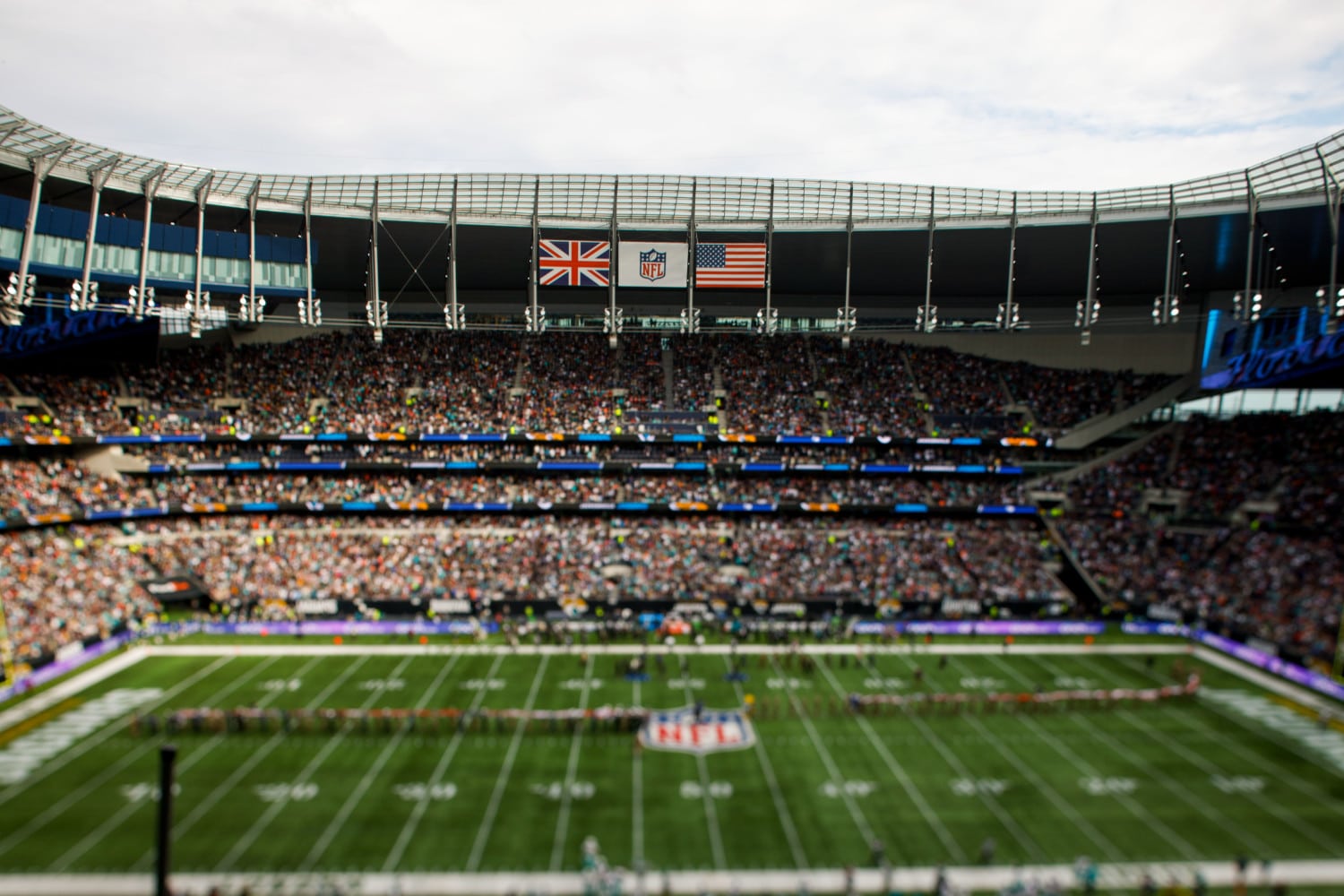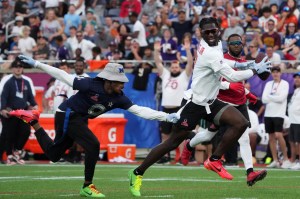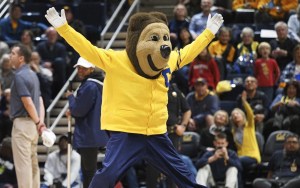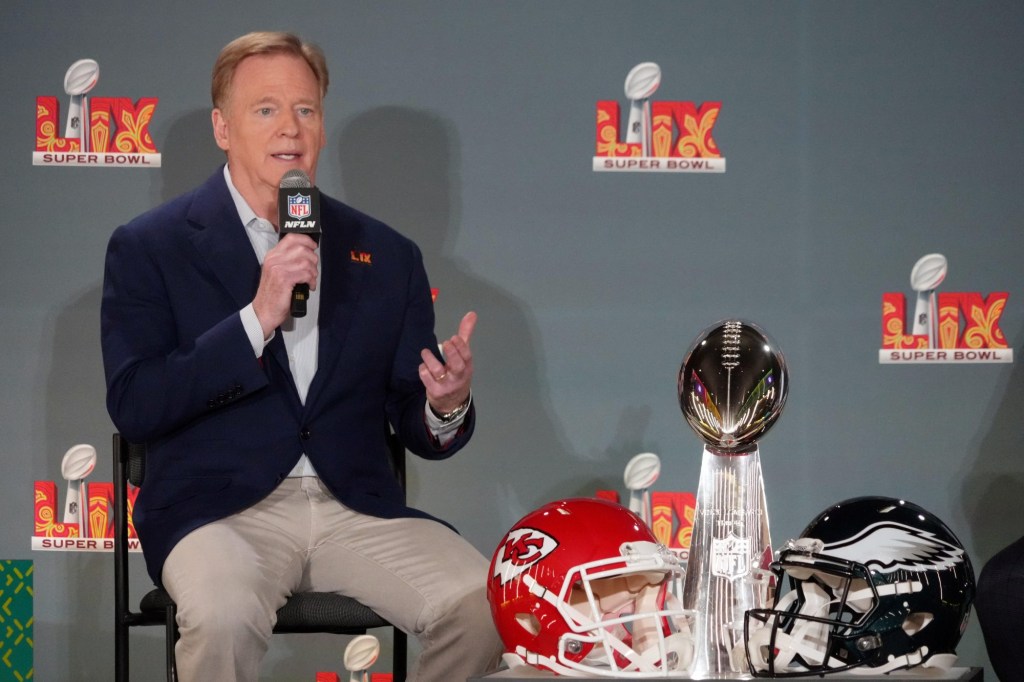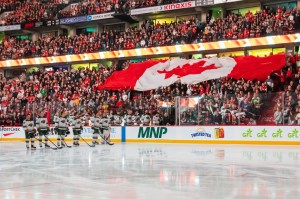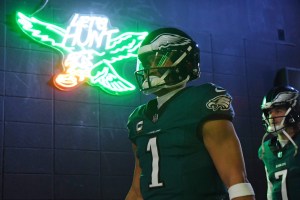Eli Manning played in London’s first NFL game in 2007, leading the New York Giants to a 13-10 win over the Miami Dolphins in front of 80,000 fans at Wembley Stadium. The crowd seemed to have a good time, even if fans were better acquainted with a different kind of football.
“Fans cheered at all the punts, and they cheered at fights,” he recalled. “Weird moments in the game were what they thought was exciting.”
Fifteen years later, Manning, no longer playing but still working with the Giants, was on hand for their Oct. 9 victory over the Green Bay Packers at Tottenham Hotspur Stadium.
“Now they’re cheering for a 3rd-and-1 run for one yard,” he said. “I think they’re more involved. They’re more interested. There are more fans of the game of American football over there than there were 15 years ago.”
That’s good news for the NFL, which is looking to grow from America’s favorite league to a global phenomenon.
Crossing Borders
In December 2021, the NFL awarded international marketing rights to 19 teams across 10 countries — and expects to steadily add to those totals.
- Six teams have marketing rights in the United Kingdom.
- Nine teams have rights in Mexico, including the San Francisco 49ers and Arizona Cardinals, who will play in Mexico City on Nov. 21.
- Four teams have rights in Germany, where the league will play one game this season and three more over the following three seasons.
- The Minnesota Vikings and Seattle Seahawks have rights in Canada.
- The Super Bowl champion Los Angeles Rams hold rights in China and Australia.
With the advent of the 17-game season in 2021, the league requires every team to play at least one international game every eight years. Now that the Packers have made the trip, every team has played in London.
Culture Shock Commerce
The challenge for the NFL in Europe and elsewhere is not just about exporting a distinctly American game, but presenting a game built through American business models and consumer behavior to an entirely different culture.
“Even in North America there are two main challenges,” said Jason Thomas, CEO of Tappit, a cashless payment system for live events. “One is the way people buy tickets. In the NFL, on average, you have about three ticket holders per account holder, because people have bought for friends and family. They may even only know the name…of around 25% of their audience.”
Thomas says another challenge stems from how fans spend money at stadiums, “because all that data is going back to Visa and MasterCard, Google, Apple, etc.” — but not necessarily to the league.
“So even in North America, understanding fan behavior is a challenge. But unless they really have a very well-thought-out digital and data strategy, they’re going to find that even more challenging in the rest of the world.”
Content Is King
Then again, perhaps finding fans is less important than having them be able to find you.
“Our main focus for NFL International is to grow fandom across the world,” Peter O’Reilly, the league’s executive vice president of club business, major events, and international, told Front Office Sports. “Our plan to help achieve that goal in the media space is similar to our strategy in the United States — reach.”
- According to O’Reilly, the league boasts 216 million fans outside the U.S. and distributes its content in 25 languages across 200 countries and territories.
- Demand for its European games reached unprecedented proportions this year, with all three London games selling out and 800,000 people entering the digital queue for the Nov. 13 Munich game when tickets went on sale.
“Ticketmaster estimated that with the demand, we could have sold 3 million tickets for the game,” said O’Reilly.
By comparison, league attendance for all of last season was just over 18 million. That has NFL commissioner Roger Goodell wondering if a few scattered games in Europe per year is enough.
Long-Term Commitment
“I think there’s no question that London could support not just one franchise, I think two franchises — I really believe that,” said Goodell before the Giants-Packers game earlier this month.
Of course, if you’re going to add two, why stop there? Goodell noted that ideally there would be an entire European division in the NFL, so that the teams based there could make fewer trips across the Atlantic.
There aren’t any indications that a full-time European team is coming, but just the fact that Goodell can float the concept without getting laughed at shows how successful the league’s international efforts have been.
With all of its home cities and the vast majority of its talent pool based in the U.S., the league is still a materially American phenomenon, and given the mix of cultural, logistical, and regulatory challenges that come from placing a team outside North America, it’s likely to stay that way for the foreseeable future.
But soaring team values, established media relationships, and a huge international fan base means the NFL is capable of one day flipping that switch and fully committing to Europe — and beyond.
